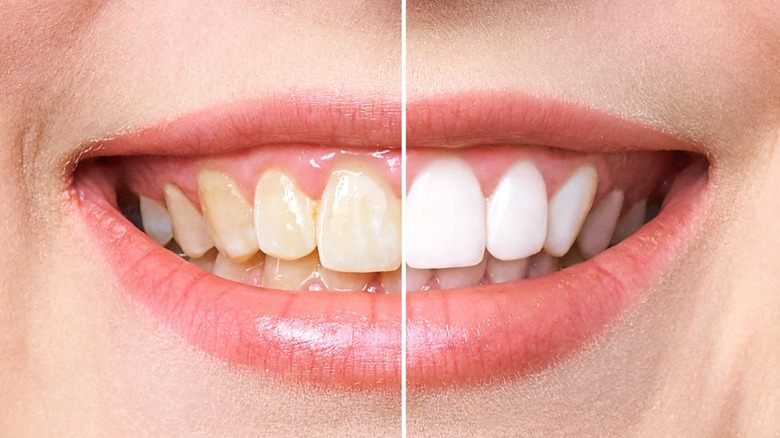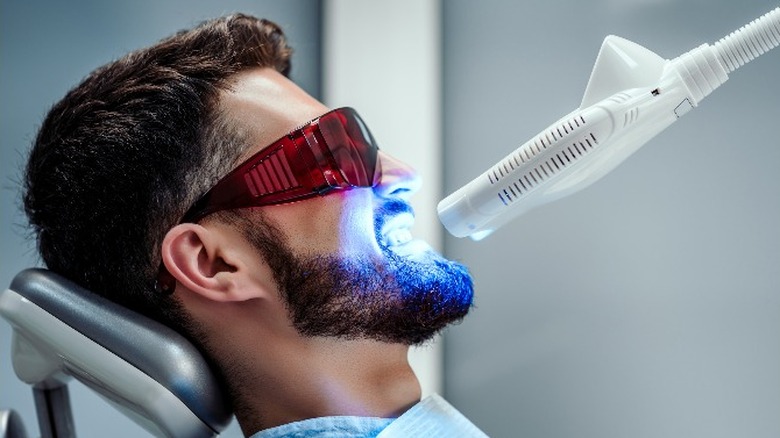This Is How Often You Should Whiten Your Teeth
If you're looking into teeth whitening to brighten your smile, there are a variety of ways to accomplish your goal. There are some important things to keep in mind when determining the best method.
While it may seem like the rise of Instagram and other social media channels are to blame for the teeth-whitening craze, people began whitening their teeth long before social media was invented. According to the Seattle Times, teeth-whitening likely originated 4,000 years ago in Egypt. Egyptians created their teeth-whitening mixtures using a blend of ground pumice stone and wine vinegar. The Romans later came up with a somewhat less palatable teeth-whitening solution — urine. The ammonia in their urine served as the teeth-whitening agent. Fast forward to the 17th-century — Barbers were giving shaves, haircuts, and teeth-whitening treatments. Unfortunately, the 17th-century teeth-whitening method barbers used included filing down teeth and applying acid, which ultimately led to erosion and decay.
Thankfully, there are more sophisticated and safer methods to choose from now. Still, the question remains — are certain teeth-whitening practices more effective than others? Is it better to get your teeth whitened at a dentist's office or at home? And how often can you whiten your teeth safely?
Teeth-whitening at the dentist versus at-home methods
Idlewild Family Dentistry reminds you to be careful about whitening your teeth too often. This is because over-whitening can ultimately do damage, such as making your teeth more translucent and hypersensitive. They take a conservative approach and recommend that you whiten your teeth — whether professionally at the dentist or home — only once a year. Professional whitening can last a year, removing concerns of over-whitening.
Suppose you would rather try at-home methods like whitening toothpaste, strips, mouthwash, pens, or gel trays. In that case, each requires different application regimens and could yield varying results, depending on the nature of your teeth stains and how well you maintain good oral hygiene. Using whitening toothpaste over more prolonged periods could damage tooth enamel, so the experts at Healthline suggest you interchange whitening toothpaste with toothpaste that strengthens enamel. Similarly, whitening strips can effectively remove stains, but since they contain peroxide for bleaching the teeth, incorrect use or overuse could cause damage to your teeth.
According to WebMD, you should talk to your dentist before trying an at-home teeth-whitening approach. Whatever teeth-whitening method you ultimately use, however, reducing your intake of coffee, wine, and carbonated sodas, refraining from smoking, and avoiding strongly colored foods such as berries and sauces, can protect your teeth against acids, tannins, and help extend the results.


